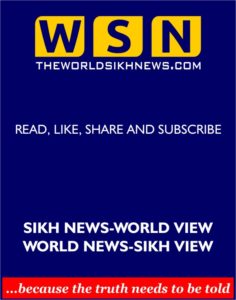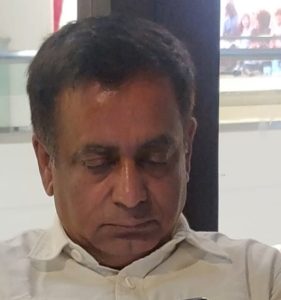Father Stan Swamy: His death and its reverberations
Father Stan Swamy was an octogenarian suffering from Parkinson’s disease. He was associated with the issue of tribal rights over land, water and forest. These issues impelled a Tamil to spend a large part of his adult life in Jharkhand. Evidently, his activities and denunciations got under the skin of the powers that be, a crime that Father Stan Swamy had to pay for with his life. He was a pre-trial accused booked under provisions of UAPA for his alleged involvement in the Bheema-Koregaon case. The charges are based on some letters received by email on Father Stan Swamy’s hard drive. Writer-activist Kumar Sanjay Singh dwells on the international ramifications of his death and the role of India’s National Investigative Agency.
![Father Stan Swamy was an octogenarian suffering from Parkinson’s disease. He was associated with the issue of tribal rights over land, water and forest. These issues impelled a Tamil to spend a large part of his adult life in Jharkhand. Evidently, his activities and denunciations got under the skin of the powers that be, a crime that Father Stan Swamy had to pay for with his life. He was a pre-trial accused booked under provisions of UAPA for his alleged […]](https://www.theworldsikhnews.com/wp-content/uploads/2021/07/FatherStan-Swamy-360x266.jpg)
Right since his arrest Father Stan Swamy has been insisting that these letters were surreptitiously placed on his hard drive. A claim that is bolstered by the findings of Arsenal Consulting, a Massachusetts based digital forensics firm, that has investigated several high profile cases including the Boston bombing.
The conduct of the government agencies since the arrest underscores that petulance rather than an actual investigation of the Bheema Koregaon case was the reason behind the incarceration of Father Stan Swamy.

Father Stan Swamy was arrested at the height of what may be termed as the desi version of Mccarthyism — a punitive campaign to silence critiques of the present government by categorizing them as Urban Naxals.
Father Stan Swamy was arrested at the height of what may be termed as the desi version of Mccarthyism — a punitive campaign to silence critiques of the present government by categorizing them as Urban Naxals.
 Booked by the Pune police on 22nd August 2018 when a BJP led coalition was in power in Maharashtra, the case was shifted to NIA on 25th January 2020, to prevent the Shivasena led coalition government from intervening in the incarceration of the octogenarian.
Booked by the Pune police on 22nd August 2018 when a BJP led coalition was in power in Maharashtra, the case was shifted to NIA on 25th January 2020, to prevent the Shivasena led coalition government from intervening in the incarceration of the octogenarian.
Ordinarily, it may be assumed that cases that are significantly related to national security, unity and integrity are transferred to the NIA. Hence, it would not be irrational to expect that the case, on being transferred to the NIA, will be pursued with vigour.
Yet in spite of this transfer, there isn’t any credible evidence of any meaningful progress in the investigation of Father Stan Swamy’s involvement in the Bheema Koregaon case.
Several reports in the print and electronic media have cited Father Stan Swamy’s lawyer that in spite of arrest since 8th October 2020 Father Stan Swamy was not called for questioning by the NIA, charges on the UAPA were yet to be framed against him.
While the NIA indeed displayed a lackadaisical attitude towards investigation the reacted with alacrity to create as many obstacles as possible in denying constitutionally mandated rights available to under trial inmates in India.
“USCIRF condemns in the strongest terms the deliberate neglect and targeting by the government of India that led to the death of Father #StanSwamy, an 84-year-old Jesuit priest and longtime human rights defender.”
The NIA denied Father Stan Swamy’s request to be provided with a sipper as he could not drink water without it due to the ravages of Parkinson’s disease. It was only after the court’s intervention that this basic request was approved and Father Swamy received the straw and sipper on 4th December 2020. The NIA also objected to the plea of interim bail on medical grounds. Father Stan Swamy was prophetic in prognosticating that in the event of denial of interim bail he might forfeit his life to the prison. And so he did on 5th July 2021.
 It needs to be underscored that providing an ailing octogenarian under trial inmate with a straw and sipper or an interim bail on medical grounds would not have weakened the charges (as yet not framed) against father Stan Swamy. It needs to be reminded with emphasis that while the government and its agencies have the jurisdiction to incarcerate individuals against whom they have evidence of unlawful and illegal activities, yet democratic governments are expected to exercise these powers with a modicum of restraint, especially when their decisions are related to the constitutionally mandated rights of its citizens, both free and incarcerated.
It needs to be underscored that providing an ailing octogenarian under trial inmate with a straw and sipper or an interim bail on medical grounds would not have weakened the charges (as yet not framed) against father Stan Swamy. It needs to be reminded with emphasis that while the government and its agencies have the jurisdiction to incarcerate individuals against whom they have evidence of unlawful and illegal activities, yet democratic governments are expected to exercise these powers with a modicum of restraint, especially when their decisions are related to the constitutionally mandated rights of its citizens, both free and incarcerated.
The government in its zeal to stamp out every form of criticism and dissent has apparently crossed the fine line that separates elected democracies from elected autocracies. Yet it’s this brazenness towards human rights and civil liberties that has proved to be its undoing in Father Swamy’s death. His death has jolted the normally timid opposition into unitedly castigating the government over the death of a tribal rights activist.
 It may be of concern for the Modi government that international bodies. Special rapporteurs of UN and EU aired their written concern and disapproval of the death of Father Stan Swamy as a symptom of the erosion of the rights regime in India. Similar sentiments were expressed by the USA.
It may be of concern for the Modi government that international bodies. Special rapporteurs of UN and EU aired their written concern and disapproval of the death of Father Stan Swamy as a symptom of the erosion of the rights regime in India. Similar sentiments were expressed by the USA.
On 8th July 2012, United States Commission on International Religious Freedom (USCIRF) tweeted, “USCIRF condemns in the strongest terms the deliberate neglect and targeting by the government of India that led to the death of Father #StanSwamy, an 84-year-old Jesuit priest and longtime human rights defender.”
It will be pertinent to recall that the USCRIF has been, since April, recommending for the second year in a row, that India be categorized as a country of particular concern (CPC) on religious freedom. While India has not been placed on the CPC list prepared by the US Secretary of State, there appears to be a remarkable convergence of views between the Biden administration and the USCIRF on the death of Father Stan Swamy.
Shortly after the blunt condemnation of Father Stan Swamy’s by USCIRF, the Biden administration made public its position on the death of Father Stan Swamy while in judicial custody.“We are saddened by the death of Father Stan Swamy, a Jesuit priest & tribal rights activist, who died in Indian custody under charges of the Unlawful Activities Prevention Act. We call on all governments to respect the vital role of human rights activists in healthy democracies.”
It is important to understand the significance of the shift in the international diplomatic landscape in the time when Father Stan Swamy was incarcerated and his death as an undertrial on 5th July 2021.
 It is important to understand the significance of the shift in the international diplomatic landscape in the time when Father Stan Swamy was incarcerated and his death as an undertrial on 5th July 2021. Father Stan Swamy was arrested in a period dominated by an alliance of conservative governments led by Trump. Trump had wrecked the post-war multilateral institutions, UN, WHO, International climate Agreement, NATO, etc., which were replaced by an alliance of his acolytes, Bolsenaro in South America, Poland in Europe, Isreal in West Asia, India in South Asia, Japan and Australia in the Pacific region, etc. This alliance had little patience with human rights which was being replaced with transactional ties between the US and its allies.
It is important to understand the significance of the shift in the international diplomatic landscape in the time when Father Stan Swamy was incarcerated and his death as an undertrial on 5th July 2021. Father Stan Swamy was arrested in a period dominated by an alliance of conservative governments led by Trump. Trump had wrecked the post-war multilateral institutions, UN, WHO, International climate Agreement, NATO, etc., which were replaced by an alliance of his acolytes, Bolsenaro in South America, Poland in Europe, Isreal in West Asia, India in South Asia, Japan and Australia in the Pacific region, etc. This alliance had little patience with human rights which was being replaced with transactional ties between the US and its allies.
With Father Stan Swamy’s death, a powerful critique of the government’s policies has been silenced. But his death is casting a long shadow on Indian efforts to consolidate ties with the west.
With the anointment of Joe Biden as the 46th President of the USA, this under went a profound change at two levels: 1. The post-WWII multilateral institutions were restored to their position of prominence. 2. Human Rights rather than transactional exchanges became the calling card of US, EU and NATO’S diplomatic initiatives. There’s a remarkable convergence between the USA, EU & NATO on making human rights their tool of choice in dealing with Russia and China.
There’s a remarkable convergence between the USA, EU & NATO on making human rights their tool of choice in dealing with Russia and China.
This may adversely impact upon the imperative of look west policy confronting India, impelled by the increasing hostility with China and the all too evident downgrading of the QUAD in the Biden administration’s policy on the Indo-Pacific region. There are a litany of human rights concerns that are shared by USA, EU & NATO viz., CAA, abrogation of article 370, repeated suspension of access to Internet, violation of freedom of speech in the new internet laws, restrictions on freedom of religion, etc. Father Stan Swamy is a rather poignant addition to this long list of growing human rights concerns of the west with Modi sarkar.

With Father Stan Swamy’s death, a powerful critique of the government’s policies has been silenced. But his death is casting a long shadow on Indian efforts to consolidate ties with the west.
Evidently, the reverberations of Father Stan Swamy will long outlast his passing away.
 Kumar Sanjay Singh is an Associate Professor in the Department of History at the Swami Shraddhanand College, the University of Delhi with a specialisation in Mutations in Indian State formation post-1947, Extraordinary laws especially Internal Security Legislations and Human Rights with a special focus on North-east India and Adivasi society.
Kumar Sanjay Singh is an Associate Professor in the Department of History at the Swami Shraddhanand College, the University of Delhi with a specialisation in Mutations in Indian State formation post-1947, Extraordinary laws especially Internal Security Legislations and Human Rights with a special focus on North-east India and Adivasi society.
